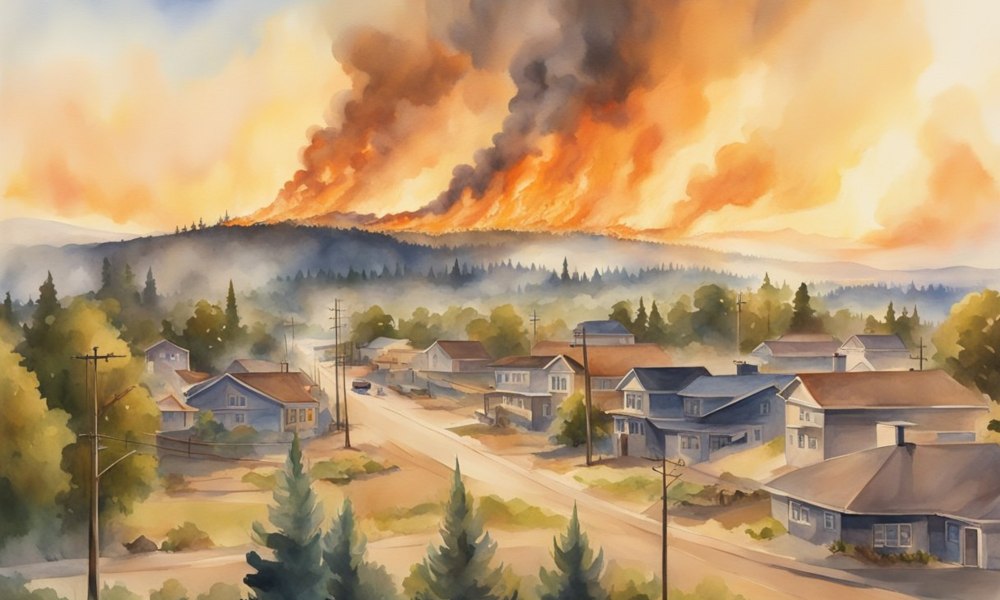Wildfires are raging across western Canada, putting many people in danger. Here are the key points:
- Strong winds doubled the size of a significant wildfire in just one day
- Around 7,000 residents had to evacuate their homes near oil production areas
- Wildfire season arrived much earlier than usual this year due to dry conditions
- The fires caused thick smoke and terrible air quality across the region
Has your community ever been affected by wildfires? Read on to learn more about this dangerous situation.
Fire Doubled in Size Overnight
A massive wildfire near the oil hub of Fort McMurray, Alberta, grew twice as large in 24 hours. Fanning winds caused the flames to spread rapidly across the dry terrain.
As the blaze approached towns and production sites, nearly 7,000 residents immediately received orders to leave their homes. Shocking videos showed roads clogged with vehicles as people rushed to evacuate.
“I lost everything in 2016, and I had to start over,” said one evacuee. “I always keep a bag packed, ready to leave at any moment.”
Early Start to Wildfire Season
Wildfires commonly occur in western Canada each summer. However, this year’s fire season began much sooner than expected due to unseasonably warm, dry conditions.
Climate change is considered a major factor in the fires’ earlier start and more intense burn. Over 100 firefighters have been deployed to battle the flames so far.
“It’s typical for Canada to have wildfires, but not this early,” said a reporter covering the blazes. “We usually see the worst in July and August.”
Air Quality Alerts Across the Region
Within 24 hours, the fires triggered air quality alerts across western Canada and into parts of the northern United States. Thick plumes of smoke blocked out the sun in some areas.
While the number of fires may be lower than peak seasons, the situation remains dangerous and unpredictable. Officials warn that shifting winds could quickly push the flames toward more populated areas.
Last year was western Canada’s worst wildfire season on record, with an area larger than the state of West Virginia being scorched.
Looking Ahead
Firefighters will continue working to contain the blazes as quickly as possible. However, the dry conditions across the region show no signs of letting up soon.
Residents should stay alert, be prepared to evacuate if needed, and limit time outdoors due to heavy smoke. The wildfire threat may persist for some time.
How would you react if ordered to evacuate your home on short notice due to an approaching wildfire?
















